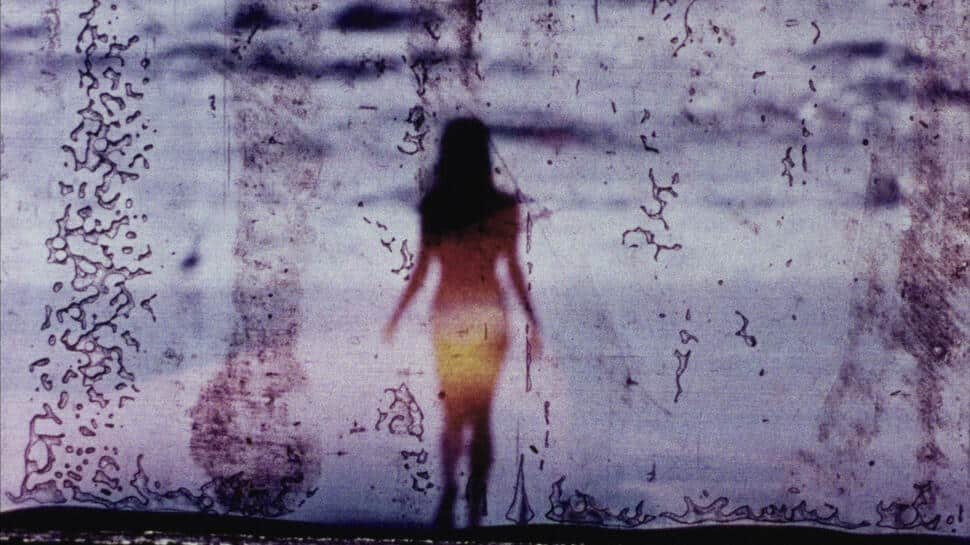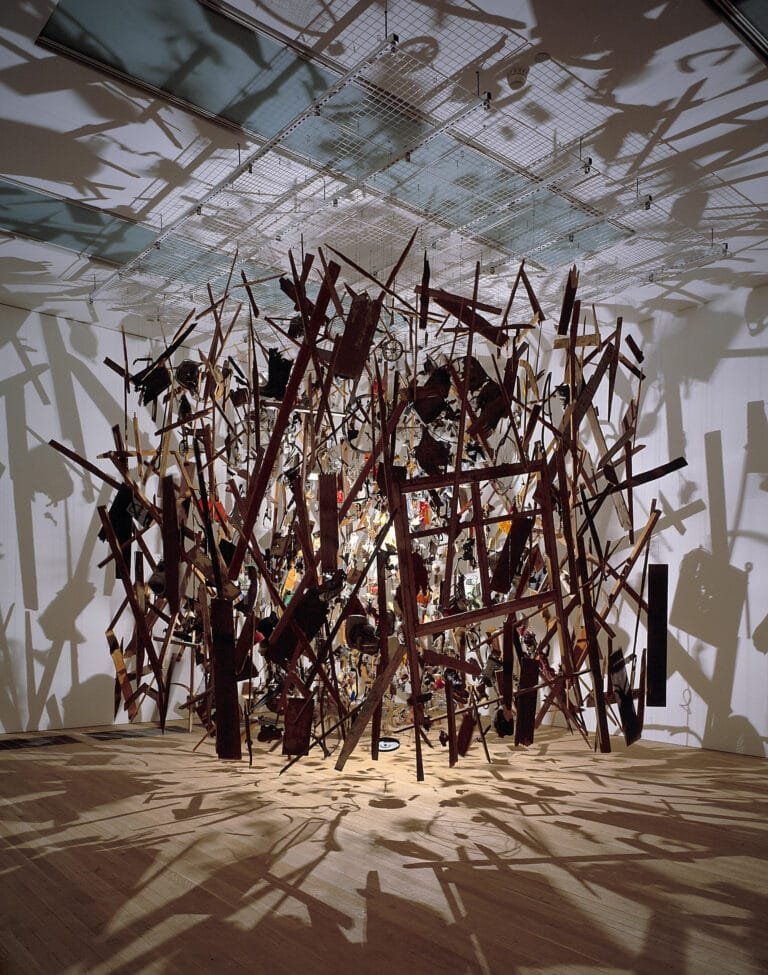
Carolee Schneemann Film Series
This autumn Barbican Cinema celebrates Carolee Schneemann (1939-2019), the radical American artist who addressed urgent topics, from sexual expression and the objectification of women, to human suffering and the
violence of war.
Schneemann is known primarily as a performance artist, but her artistic expression was properly interdisciplinary, spanning painting, sculpture, writing, moving image and large-scale multimedia installations. Over the
course of her life, she made significant and experimental contributions to the world of film.
The five-part Carolee Schneemann Film Series offers the chance to view, in a cinema space, Schneeman’s four remarkable short film works, alongside Breaking The Frame, an unconventional, impressionistic portrait of
Schneemann, plus other films by her contemporaries that approach similar themes – sexuality, the taboos around women’s bodies, and the experience of viewing human suffering through mediated images.
Lotte Johnson, Art Gallery Curator, says: ‘Through moving image, Schneemann explored sexual desire, challenged the ‘male gaze’, took her daily life and relationships with humans and non-humans (specifically cats) as
source material, and protested the senseless violence of war. She forged a new, experimental language through her work in film – painting, scratching, and collaging her film stock, even baking it in the oven and leaving it out in the
rain. The Cinema team at the Barbican have conceived a wonderful programme of films that reveal Schneemann as a transformative filmmaker and place her in fascinating dialogues with her peers.’
Her landmark film, Fuses (1964-67), receives a rare cinema screening, on a newly-struck 16mm print, as part of “The Autobiographical Trilogy” (23 Sep) in addition to showing in full in the Barbican Gallery Exhibition Carolee
Schneemann: Body Politics. Fuses is a self-shot portrait of Schneemann and her partner James Tenney having sex, with the cat Kitch as witness and companion. This radical piece, made over the course of three years,
celebrated heterosexual pleasure and set out to question, expand and complicate representations of the female body and sexuality, offering a new proposal for the expression of erotic experience.
Also screening in the same programme are: Plumb Line (1968-1971) which chronicles the dissolution of an intimate relationship, and the ongoing war in Vietnam, and Kitch’s Last Meal which documents domestic life in upstate
New York with her then-partner, the artist Anthony McCall, as seen through the eyes of her elderly cat, Kitch.
Her short Viet-Flakes (1962-7), which screens in Interrogating The Image (28 Oct), features photos of the Vietnam War from international newspapers and magazines, clipped by Schneemann over a five-year period, of violence
and suffering so shocking that many of them never appeared in print in America.
Schneemann was one of a generation of experimental women filmmakers in the 1960s and 1970s who made body-centred films that sought to release their sexual experiences from the taboos of depiction. In Intimacy and the Body (20 Oct) the selection addresses nudity, erotic fantasy, masturbation, lesbian sexuality and more, by filmmakers including Barbara Hammer, Joyce Wieland, Maria Lassnig and Chick Strand.
The fifth and final screening in this series, Art in Flux – Radical Embodiment (10 Nov) is programmed by external curating partners Art in Flux, and considers Schneemann’s legacy for artists working today and addressing issues of sexuality and gender, including work by artists Tiffany Trenda, Kimatica Studio, Paul Kindersley, Camille Baker, Olive Gingrich, Laura Jean Healey, Ro Greengrass & Maddy James and The Analema Group. Other special guests to be announced.
Carolee Schneemann – Film Series (17 Sep – 10 Nov) is part of the public programme of events surrounding the exhibition Carolee Schneemann: Body Politics (8 Sep 2022 – 8 Jan 2023) in the Barbican Gallery.
LISTINGS
Sat 17 Sep, 3.40pm, Cinema 3, 108min approx
Carolee Schneemann: Breaking the Frame (18) introduction by
Gallery curator Lotte Johnson
Canada 2012, Dir Marielle Nitoslawska
plus Carolee, Barbara & Gunvor
US 2018, Dir Lynne Sachs
A rare chance to catch Breaking the Frame, an unconventional,
impressionistic portrait of Carolee Schneemann.

Rather than a simple survey of Schneemann’s life and work, Nitoslawska’s documentary is structured thematically, as a kind of collage, and aims to capture the artist in her own words and images.
Contemporary interviews with Schneemann are interwoven with excerpts from her film works, documentation of performances – including Meat Joy (1964) and Interior Scroll (1975) – and more recent museum commissions and
exhibitions. Schneemann’s philosophical observations on spatial theory, nature and politics of the human body – drawn from her diaries and read in voiceover – offer insights into the process and execution of some of her most
famous pieces.
Dreamlike and meandering in tone and structure, some of the film’s most thrilling sections ramble through Schneemann’s 18th -century Hudson Valley farmhouse.
Breaking the Frame screens here with Carolee, Barbara & Gunvor (2018), a short, tripartite documentary profile of Schneemann and fellow artist- filmmakers Barbara Hammer and Gunvor Nelson.
Fri 23 Sep, 6.35pm, Cinema 3, 86min approx
Carolee Schneemann: “The Autobiographical Trilogy” (18) plus
Introduction
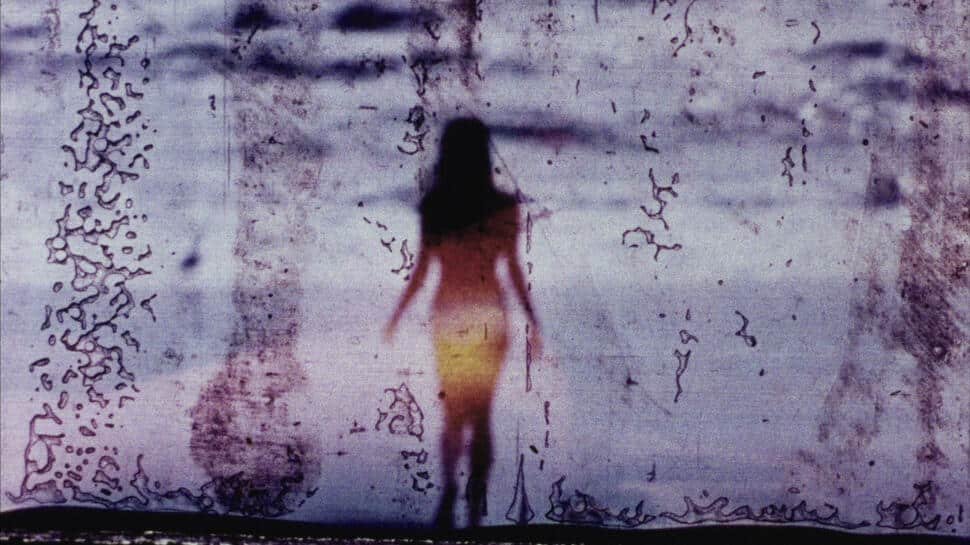
Fuses (US 1964-67, Dir Carolee Schneemann, 25 min, 16mm silent)
Plumb Line (US 1968-1971, Dir Carolee Schneemann, 14 min, digital sound)
Kitch’s Last Meal (US 1973-76, Dir Carolee Schneemann, 54 min, digital sound)
Made over a period of twelve years, this trio of autobiographical films together explore sex, art and intimacy. Filmed in Schneemann’s own home, they could be loosely described as ‘diary’ films. Schneemann herself thought of them as a trilogy.
Fuses (1964-67) documents Schneemann and her long-term partner, James Tenney, at home, having sex. In a revolutionary move, Schneemann gives as much weight to sexual intimacy and pleasure as experienced from the
woman’s point-of-view, as from the man’s; here neither lover is ‘object’ or ‘subject’, the exchange is sensuous and equitable.
Plumb Line (1968-1971) chronicles a period of crisis in Schneemann’s life, marked by anguish over the dissolution of an intimate relationship and the ongoing war in Vietnam. The carpenter’s tool referenced in the title refers both
to an actual item belonging to another of her lovers, and more poetically to a way of measuring the centre of her own despair.
Completing the trilogy, Kitch’s Last Meal (1973-76) documents Schneemann’s domestic life in upstate New York with her then-partner, the artist Anthony McCall, as seen through the eyes of her elderly cat, Kitch – for whom any meal may be also the last.
Thu 20 Oct, 6.45pm, Cinema 1, 82min approx
Carolee Schneemann: Intimacy and the Body (18) plus Introduction
Dyketactics, US 1974, Dir Barbara Hammer, 4 min, digital, sound
Multiple Orgasm, US 1976, Dir Barbara Hammer, 6 min, 16mm, silent
Fever Dream, US 1979, Dir Chick Strand, 7 min, 16mm, sound
Moons Pool, US 1973, Dir Gunvor Nelson, 15 min, digital, sound
Water Sark, Canada 1964-5, Dir Joyce Wieland, 14 min, 16mm, sound
Orange, US 1970, Dir Karen Johnson, 3 min, 16mm, sound
Iris, Austria/US 1971, Dir Maria Lassnig, 10 min, digital, sound
Crocus, US 1971, Dir Suzan Pitt, 7 min, 16mm, sound
Bath, US 1968, Dir Penelope Spheeris, 6 min, 16mm, sound
Mann & Frau & Animal, Austria 1970-3, Dir Valie Export, 8 min, digital, sound
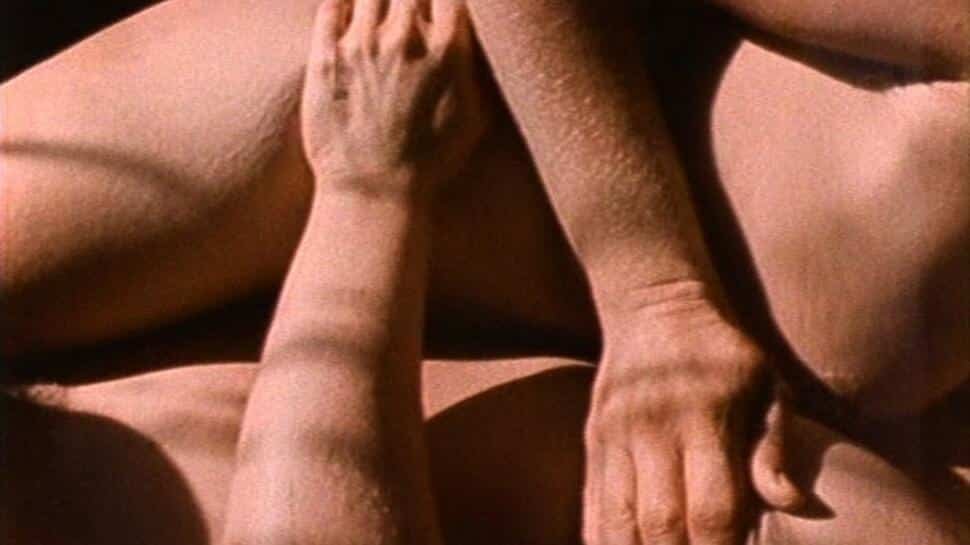
This programme assembles work from the 1960s and 70s by experimental women filmmakers, contemporaries of Carolee Schneemann, taking as their subject women’s bodies, sexuality and desire.
Defying conventional ideas of decorum, from the early 1960s Carolee Schneemann began using her own naked body in her work. Many of her pieces challenged dominant interpretations of women’s sexual expression and
experience. Her film Fuses (1964-66) (showing in the Cinema as part of “The Autobiographical Trilogy” on 23 Sep, and in the Gallery exhibition) was ground-breaking: a critique of the objectification of the female body and the
evasion of sexuality in American cinema, and a radical attempt to render her own erotic experience through moving image.
Schneemann was a pioneer, but also one of a generation of experimental women filmmakers in the 1960s and 1970s who made body-centred films that sought to release their experiences of sexuality from the taboos of depiction. The Barbican presents a selection here, addressing nudity, erotic fantasy, masturbation, lesbian sexuality and more, by filmmakers including Joyce Wieland, Maria Lassnig and Chick Strand.
Fri 28 Oct, 6.45pm, Cinema 3, 82min
Carolee Schneemann: Interrogating The Image (18) plus Introduction
Viet-Flakes, US 1962-7, Dir Carolee Schneemann, 9 min, digital, sound
Inextinguishable Fire, Ger 1969, Dir Harun Farocki, 25 min, digital, sound
Perfect Film, US 1965/1985, Dir Ken Jacobs, 22 min, 16mm, sound
Report, US 1963-67, Dir Bruce Conner ,13 min, digital, sound
Marilyn Times Five, US 1968-73, Dir Bruce Conner, 13 min, digital, sound

Beginning with Schneemann’s own Viet-Flakes (1962-67), this programme brings together a selection of found footage films that critique, challenge and subvert the power of images produced and distributed by the media.
Over a period of five years, Carolee Schneemann clipped photos of the Vietnam War from international newspapers and magazines, images of violence and suffering so shocking that many of them never appeared in print in America. Spreading them out in an arc on her studio floor, she panned over and zoomed into these images with her 8mm camera, travelling into and ‘animating’ them. The resulting film, Viet-Flakes, is a powerful protest against
the Vietnam War, reflecting on the ethics, and politics, of witnessing the destruction of war at a remove, through photographs.
Viet-Flakes is paired here with four other celebrated experimental films from the late-1960s/early-1970s, all reflections on the use of documentary images in the media sphere. Three – Inextinguishable Fire directed by Harun Farocki, Perfect Film directed by Ken Jacobs and Report directed by Bruce Conner – relate to contemporary political events – the Vietnam War, the assassinations of JFK and Malcolm X – and one, Marilyn Times, again directed by Bruce Conner, obliquely, to a news item belonging to the world of celebrity – the death of Marilyn Monroe.
Thu 10 Nov, 6.45pm, Cinema 3, 90min
Carolee Schneemann: Art in Flux – Radical Embodiment (15)
Transcendence, UK 2020, Dir Maria Almena, 8 min, digital, sound
Metaverse Divinations, UK 2022, Dir Maria Almena, 4 min, digital, sound
INTER/her, UK 2021, Dir Camille Baker, 10 min, digital, sound
Tiffany Trenda: Ubiquitous States Performance at Broad Art Museum, US 2016, Dir Eric Minh Swenson, 2 min, digital, sound
Proximity Cinema: New Media Performance Art by Tiffany Trenda, US 2013, Dir Glen Campbell, 2 min, digital, sound
Tiffany Trenda Body Code Live Performance at Times Square, US 2013, Dir Tiffany Trenda, 3 min, digital, silent
UN/SEEN Performance at LA Art Show, US 2021 Dir Eric Minh Swenson 3 min digital, sound
The (Un)Holy Trinity, UK 2020, Dir Laura Jean Healey, 3 min, digital, sound
Big City Relationship, UK 2015, Dir Paul Kindersley, 9 min, digital, sound
KIMA Voice by Analema Group, UK 2022, Dirs Evgenya Emets, Olive Gingrich, Alain Renaud & David Negrao, 3 min, digital, sound
Lovers, UK 2022, Dir Oliver Gingrich, 3 min, digital, sound
Dressed to Kill, UK 2022, Dir Oliver Gingrich, 5 min, digital, sound
Down There The Seafolk Live, UK 2020 Dirs Ro Greengrass & Maddy James, 16 min, digital, sound
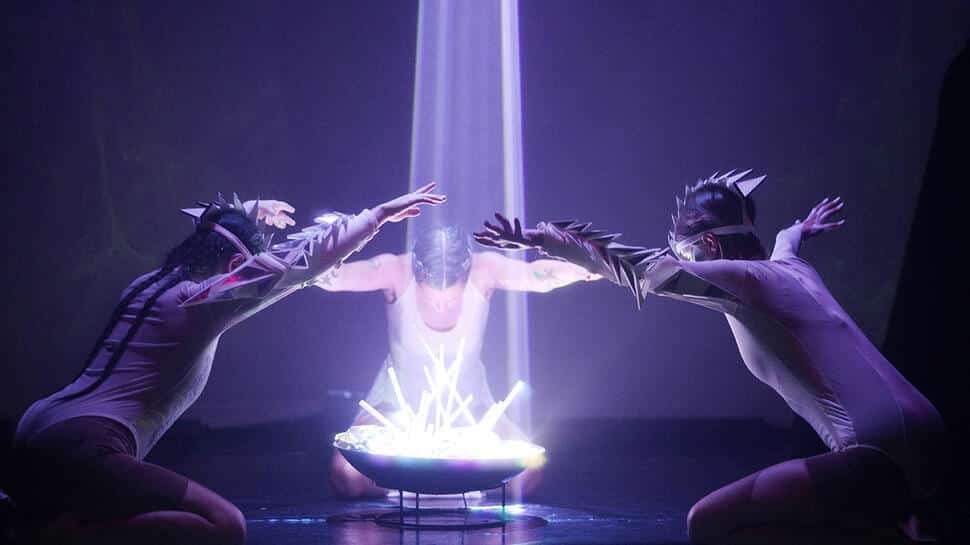
Curated and hosted by the artists Maria Almena & Olive Gingrich of Art in Flux, this interactive programme includes media art, film screenings, demos, and a discussion with curators and filmmakers on ritual embodiment and the
politics of gender.
The programme highlights the legacy of Carolee Schneemann for today’s media artists, and asks how can technologies reveal new experiences of the body, of self and other. The line-up includes work by artists Tiffany Trenda, Kimatica Studio, Paul Kindersley, Camille Baker, Olive Gingrich, Laura Jean Healey, Ro Greengrass & Maddy James and The Analema Group. Other special guests to be announced.
Ticket prices:
Standard £12; Members £9.60; Concessions £11; Young Barbican £5 (Limited availability)
The Barbican believes in creating space for people and ideas to connect though its international arts programme, community events and learning activity. To keep its programme accessible to everyone, and to keep investing in the artists it works with, the Barbican needs to raise more than 60% of its income through ticket sales, commercial activities and fundraising every year.
Donations can be made here: barbican.org.uk/donate

